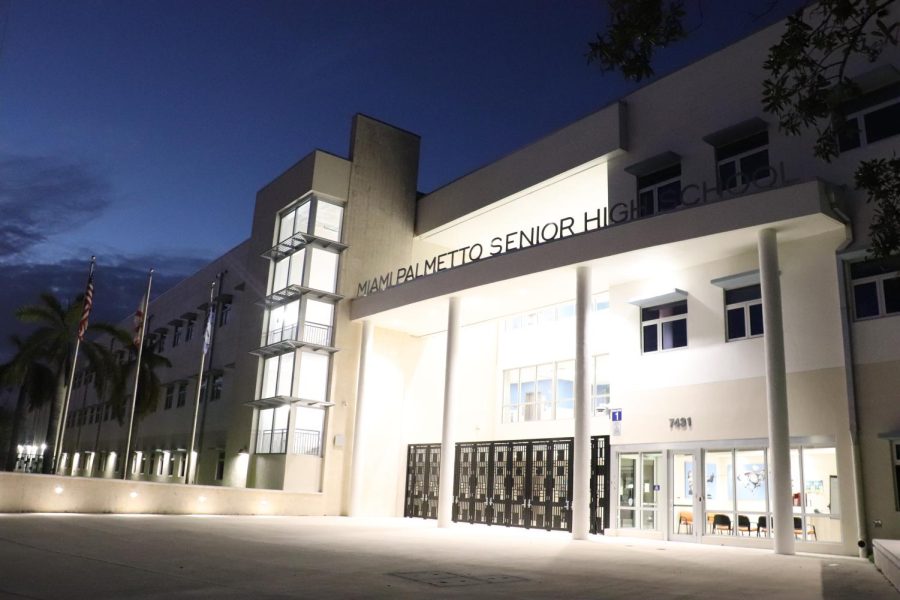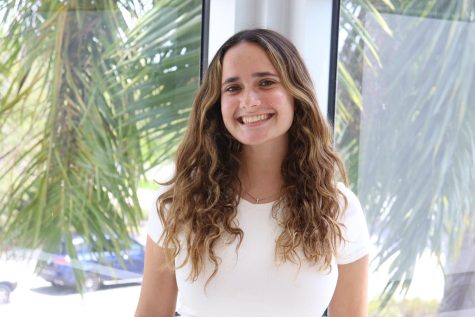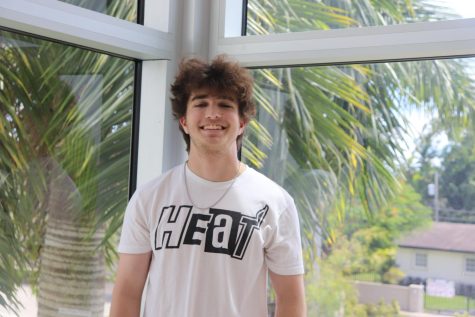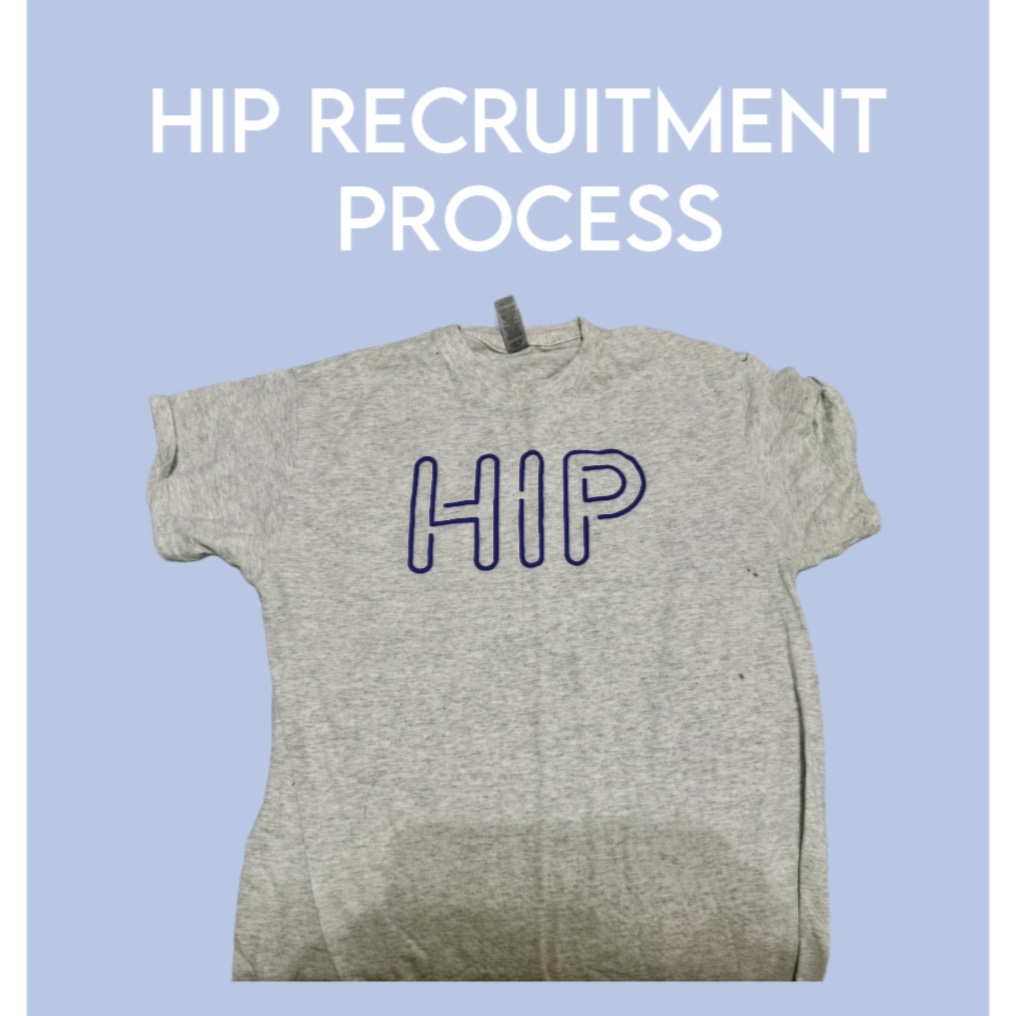After 2:20: Palmetto’s Credit Recovery and Night School Program
February 6, 2023
When the bell rings at 2:20 p.m., students flood out of Miami Palmetto Senior High’s gates, race to their buses or cars and do not return until 7:20 a.m. the next morning. Yet, the gates remain open for students enrolled in credit recovery and night school programs. Unbeknownst to many, MPSH’s classrooms continue to foster learning from sunrise to sunset.
Around 2:30 p.m., select students gather in rooms 1134 and 1133 to attend an after-school credit recovery class or seventh period. The credit recovery program acts as a second chance for students who did not receive passing credit for a class they previously took. Credit recovery classes take place on Tuesdays, Wednesdays and Thurdays after school from 2:30 p.m. to 5:30 p.m.. In addition to MPSH’s program, Miami Southridge Senior High School, Robert Morgan Educational Center and Felix Varela Senior High School also host credit recovery programs.
Students, under MPSH Geometry honors teacher and Math and Science Department Chair for night school Stephen Leverett’s instruction, attend their seventh-period math and science classes in room 1134. Students take English and Social Studies classes in room 1133 facilitated by 11 and 12 grade MPSH English teacher and Adult Education English night school teacher, Patrice Bowman.
Students can take up to two credit recovery classes at a cost of $7.00. They can receive a half-credit and attend seventh period for five weeks, or receive full credit and attend for 10 weeks. Aside from completing the class, a major requirement of credit recovery also includes attendance. Even if students log in at home, they will not receive credit for their work since their in-school attendance is mandatory.
“In order to get half credit, you’ve got to get your 45 hours. You can get 100% completion but if you don’t have your 45 hours, no credit. And [students taking] a full credit… they have to get 90 hours and can miss up to four days. So half credit can miss up to two days and full credit can miss up to four days,” Bowman said.
Students take their credit recovery classes on Edgenuity, a platform many students have encountered through yearly Florida required mental health course videos.
“I oversee them doing Edgenuity so I watch them while they’re watching the videos. And then if they need help, I help out. But it’s a whole bunch of classes all in one. So it’s everything from algebra one, geometry, algebra two and math for college readiness at the math classes. And in science, I believe is biology and Earth space,” Leverett said.
The students enrolled in seventh-period credit recovery demonstrate great responsibility and determination as these students attend school for seven hours in addition to three hours after school. Despite the time commitment, credit recovery classes offer the possibility to get a full credit in only ten weeks instead of repeating for a full year. Additionally, the students grow in ways beyond their education.
“As we develop and we’re together and everyone stays on, we become like a second family, you know, because we’re here together, you’re not alone. You’re not the only person that has to get this done. So the thing to watch as a teacher is just to see there that maturity happen. It’s beautiful,” Bowman said.
As the third grading period begins, seniors must ensure they have met their requirements for graduation. If any seniors discover they are behind and need to recover credits quickly, the credit recovery program remains a valuable option to fulfill any requirements.
“Some years they do a last one, a last term right before everything has to be in just for seniors. It’s just a bunch of seniors that need to fill these squares. Last year we did not do it and the year before we did. It was last minute or rush and it was like ‘Hey, last minute get these credits’ and it worked out. Some students walk the stage because of that opportunity, but [it] depends on if the need is there or not,” Bowman said.
If students feel the credit recovery program may benefit them, they can schedule a meeting with counselor Lisa Mallard or their respective counselor to enroll.
“Like anything, you get what you put into it. So if you come in there ready to work, then you actually can get a lot of work done in a small amount of time. So for example, the people that just started this week, are going to be able to get full credit in 10 weeks time. So it’s basically an accelerated way to get their credits if they’re willing to put in the time for it,” Leverett said.
As students depart from their credit recovery classes, they may cross paths with night school students rolling in through the gates. Night school runs from 6:00 p.m. to 9:00 p.m. and costs $40.00 a term. Night school consists of three terms total and students take one half-credit at a time.
Miami-Dade County Public Schools offer many different programs in addition to night school. Other programs include English for Speakers of Other Languages (ESOL) programs, Success Management Academy (SMA) and Integrated Education and Training (IET) programs. ESOL classes for adults and students offer courses to foreign-born students, immigrants, refugees and those looking to improve their English speaking and writing skills. The SMA program is geared for 16-18 year-old students who need a high school diploma or General Education Development (GED). Hammocks Middle School offers an IET Medical Assisting Program where students from another country or non-English speakers learn how to become a medical assistant for the cost of $2.56 an hour. A coding class is currently in its final stage of development and will run similarly to the IET program.
MDCPS offers seven different locations to take adult education classes: Miami Palmetto Senior High, Hammocks Middle School, Miami Killian Senior High, Miami Southridge Senior High, Robert Morgan Educational Center, Felix Varela Senior High and Vineland K-8 Center. The school a student attends is dependent on their location and needs.
To attend night school, students must unenroll from their day school and officially enroll in the night school. The night school ESOL program includes a mix of Edgenuity, Bullington English and lesson plans. The ESOL students do not receive credit for attending, but the program allows students to demonstrate they know enough English for potential jobs or other endeavors. All people are welcome to attend ESOL classes including undocumented students or those going through the immigration process, as ensured by MDCPS’ vow to provide an education to everyone who seeks it.
“For ESOL, we do lessons with them, they have a textbook. They’re supposed to work on the app or the website and when I work with them, they have a mirror section that they can do on their own through the app so they can get extra practice. Once a week they go to the lab and they test to see what they need to get better at. What do you still need to work on? And there’s like six different levels, I have level threes and fours…but that’s how they do it [and they get] no credit,” Bowman said.
MDCPS offers a number of opportunities for residing community members and newcomers to learn skills for life and the workforce. ESOL and night school classes can prepare students to take their citizenship exam, nail a job interview and enter the workforce. Technical colleges, which often offer education for a specific job or trade, remain valuable options for people to enroll in as well.
“For adult education, [students are] getting science and the core areas. That is Monday, Tuesday, Wednesday, Thursday; four days their enrolled in half credits. I used to teach all four days whether they were online or in person. They can still be online if they are out of state or out of the country. Then, they reduced it to two, now we’re down to one day,” Bowman said.
For students who attend a day school and need to recover a credit, seventh period offers them a second chance. Yet, for those who do not align with the school system and cannot take Florida Virtual School or homeschooling, night school remains a valuable option. If a student needs to work during the day, they can unenroll from their school and enroll in night school and attend class at 5:30 p.m. four times a week.
“Every student has to find what works best for them. It’s very important. Learn what others do, but find what works for you. And don’t wait too long to play catch up. You know, the traditional route is not for everyone. But if you’re missing something, find that early, jump on it, get it done, and move forward to the future path, whatever that may be. And then if they start something dedicate themselves to, like, don’t go one weekend, and come up with an excuse. Like if you start to finish whatever you start,” Bowman said.
The Principal of Miami Palmetto Adult and Community Education Center, Desiree Gonzalez, oversees all seven locations that host credit recovery, night school, ESOL, SMA, GED and IET programs. Aside from her role as an organizer and overseer of a multitude of programs, Gonzalez understands the value of them as well.
“I failed geometry in high school and I remember the feeling of failing the course. I remember the teacher I did course recovery with and how he motivated us to improve and accept that sometimes, you don’t pass the first time. He gave me the push to try harder the second time around and not give up,” Gonzalez said.
MPSH, along with many other MDCPS schools, continues to teach students and community members from a.m. to p.m. and provide various resources for them. The options are limitless from learning English, completing graduation requirements, feeling prepared to enter the workforce, becoming a medical assistant and more. If one knows of any family members, friends or employees who could benefit from any of the programs listed above, consider spreading the word.
“One failed class does not define you,” Gonzalez said.











